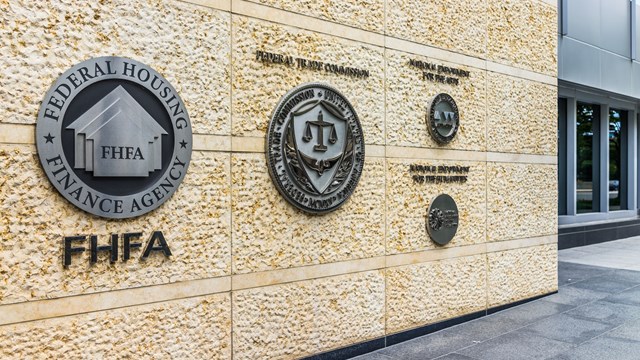While there are many similarities between co-ops and condos, are the two very different when it comes to things like insurance and liability?
The answer is both yes and no. There are similarities, but some significant differences as well. One such difference, for example, is simply the way the residents live. In a co-op, shareholders are essentially stockholders in a private corporation whose shares entitle them to live in the corporate-owned building. In a condo, unit owners are owners of real property that just happens to be stacked on top of other real property, rather than being freestanding.
Other Differences
Is it possible then that the ramifications of lawsuits and insurance claims against co-op and condo buildings can differ significantly? Well, all of this might sound like a lot of legal mumbo jumbo, but you don't need a law degree to comprehend it; it's actually pretty easy.
According to R. Bruce Freeman, a partner at Woehling & Freeman, LLP in Westfield, some of the basic laws governing the liability assumed by co-op shareholders and condo unit owners, include the New Jersey Condominium Act, and the New Jersey Horizontal Property Act, enacted in the late 1960s and early '70s and the Business Corporation Act, which provides guidelines for the administration of associations as cooperative corporations.
There also has been over the years movement to update statutes governing property rights, condominiums, cooperatives and planned real estate developments. But this proposed legislation, entitled the Uniform Common Interest Ownership Act or UCIOA, is still awaiting final passage. It's important to understand why knowing the hows and whys of insurance and liability would even be of importance.
Let's say it's cold and icy in the middle of winter and Mrs. Jones slips on some ice on the association's sidewalk and falls, breaking her hip. Although the property has a company that performs snow removal and throws salt on the ice, they didn't do the job adequately. As a result, the injured Mrs. Jones sues the association because the ice should have been taken care of. Should the condo owners fly into a monetary panic? Will the unit owners have to pay for part or all of Mrs. Jones' settlement? Not at all, according to Freeman.
"Unit owners are not liable," says Freeman. "The board could be sued for not properly managing the entity, but the board would be covered by a general liability insurance policy. The standard package of insurance coverage includes property loss—which is a risk to the property; general liability for slips and falls, and directors and officers liability insurance which covers the board members and the association for what is known as wrongful acts."
Freeman explains that it's the Condominium Act that says that a unit owner shall have no personal liability for any damages caused by the association or in the connection with the use of the common elements.
But what if Mrs. Jones' accident happened in the parking lot of a cooperative; would the shareholders worry about any financial impact? "This also applies in a co-op, although there is no statutory explanation of that," says Freeman. "The shareholders also can't be sued."
The Commonalities
To protect both entities, co-ops and condos need to be covered under a general liability policy, and a slip-and-fall would be referred to under this policy. Liability covers the co-op or condo if it's named in a lawsuit, but the amount of coverage generally required for each building under 'liability' can differ.
"For a co-op, the bare minimum insurance for the building is spelled out, because they have an underlying mortgage—and they must have insurance for that mortgage," says Thomas R. Kozera, CPCU, president and CEO of the cooperative division of SKCG Group Inc., an insurance firm based in White Plains, New York. "The minimum is usually a packaged policy that covers property and liability, D&O, crime and worker's comp—a simple minimum document."
"The absolute bare minimum insurance for a condo - since they don't have an underlying mortgage—is property and liability," says Edward J. Mackoul, vice president of Mackoul & Associates in Long Beach, New York. "Property [insurance] covers the building in the event of a covered claim. Liability covers the co-op or condo if it's named in a lawsuit. This is important, because a condominium is responsible for common areas, and if someone slips and falls or if something happens in a building—let's say a mugging or an assault - the buildings' [board of directors] are responsible."
Risks for Residents
Although individuals couldn't be sued in a general liability case, such as that of Mrs. Jones, individual shareholders and unit owners can be sued however, if they are on the board of directors for their association. Although board members volunteer their time, there is always the possibility they can make a mistake during the course of their term on the board—and occasionally, those mistakes can lead to litigation.
"There are so many more directors and officers lawsuits than before," says Alan Rappaport, a senior director at Dewitt Stern Group in Manhattan. "A new insurance product is the independent directors and officers' policy, so you can have your own D&O policy to pick up where the co-op or condo board's policy may have failed."
D&O offers individual directors and officers' protection from personal liability and financial loss arising out of wrongful acts committed—or allegedly committed - in their capacity as corporate officers and/or directors.
Protecting Your Own
It's also important that residents have a homeowner's policy to protect their own items. Unit owners might not be able to be sued, but if the building fails to have enough of insurance protection, the unit owners can be assessed to recoup the difference.
"For example, let's say the building is insured with a $1 million policy, but the building is sued for $2 million," says Rappaport. "The insurance pays the one million, and now the other million must be paid for by someone. Each unit owner could be assessed their portion. There is assessment insurance, but it's minimal. The directors and officers need to do what's right for the building with insurance."
Although some insurance products have been created as a result of certain events, cases such as Mrs. Jones have not shaped how buildings and their residents are held responsible for injuries and thefts on their property.
"The vast majority of most liability cases are limited to dealing with the relationships between the apartment and unit owner and the entity," says Freeman.
If the shareholders and unit owners are unsure if their co-op or condo has enough insurance, or the right kind of coverage, it is permissible to request to see the documents.
"Yes, there's no question that you can see these documents—you paid for them," says Freeman. "These coverages and policies are paid out of the maintenance fees, and clearly shareholders and unit owners have a right to see what they are. They have no right to change them, but you have a right to see them even if you are not on the board. When you purchase a unit, you are going to want to make sure there is adequate coverage for the association as a whole."
The bottom line in insurance is that it's not about differences in co-ops and condominiums…it's simply about having enough of the right kind of insurance for the right kind of protection.
Lisa Iannucci is a freelance writer living in Poughkeepsie, New York and a frequent contributor to The New Jersey Cooperator.







Leave a Comment